Living Your Best With Inoperable Lung Cancer

Focus on Overall Health
“Staying healthy through the process is important. Getting adequate sleep and nutrition are key. During therapy, patients often have decreased appetite and lose weight. Maintaining nutrition and activity levels to keep muscle strength is another important consideration. A support group can help you relate to others going through the same process and know what to expect.” –Jeffrey Kern, MD, chief of the Division of Oncology, Cancer Center, at National Jewish Health, Denver
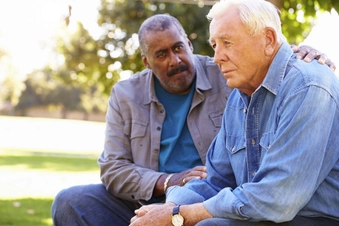
Hold on to Hope
“As lung cancer survivors, the greatest gift we can give each other is hope. We can be present, show empathy, and support one another, while believing that research will one day transition lung cancer from a horrific terminal disease to a manageable chronic disease to a cure!” –Mike Smith, lung cancer advocate living with stage IV inoperable lung cancer and volunteer for the American Lung Association
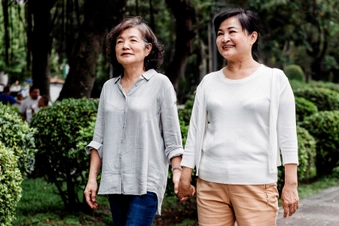
Tend to Both Body and Mind
“As a personal trainer diagnosed with stage IV lung cancer, I firmly believe in the connection of mind and body. Find whatever activity you enjoy and participate consistently: yoga, walking, hiking, biking, or recreational sports. Less active hobbies such as writing, music, drawing, reading, meditation, and prayer, can also help you feel better.” –Frank McKenna, a lung cancer patient advocate with Lung Cancer Foundation of America
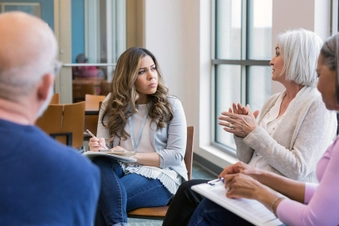
Connect With Patient Advocacy Groups
“These days there are a lot of great resources for patients with lung cancer, including more personalized information -- and patient support groups -- based on your stage of cancer or biomarkers. Lung cancer foundations and patient advocacy groups can be a great resource for reliable, up-to-date information and for connecting with other patients or caregivers.” –Lauren Averett Byers, MD, associate professor of Thoracic/Head and Neck Medical Oncology at The University of Texas MD Anderson Cancer Center
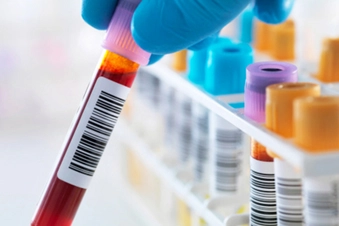
Stay in Touch With Your Medical Team
“Great progress is happening in understanding and treating lung cancer. Particularly for those individuals with cancer that is considered inoperable, we emphasize the importance of comprehensive biomarker testing to determine if the person's cancer has any changes that can be treated with a targeted drug. Many people today with lung cancer are living well on these new treatments.” –Amy C. Moore, PhD, vice president, Global Engagement and Patient Partnerships at LUNGevity

Accept Help
“Give yourself days to sit in pajamas and cry. It's good to get that out. Then, get back out at your own pace. When people ask if you want help and you need it, don't be afraid -- people want to help you.” –Amy McMillin, lung cancer patient advocate
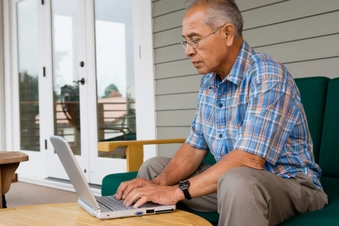
Educate Yourself
“I recommend that patients do their homework and learn about lung cancer. Trusted online resources include the National Cancer Institute at cancer.gov and the American Lung Association at lung.org. Helpful conversations can be found via Twitter using the #LCSM (lung cancer social media) hashtag.” –David Tom Cooke, MD, professor, chief of the division of general thoracic surgery, and director of robotic general thoracic surgery, UC Davis Health, and volunteer spokesperson for the American Lung Association

Know the Plan
“Once you have your cancer plan and know you have your team behind you, you will feel more in control. Cancer can make you feel a loss of control over your life. Now, you have your tools to fight cancer. You have your support network. You know you can pick up the phone anytime to call your cancer team and talk about your symptoms. Once you know you have a good support network, you will do better.” –Alison Massey, ANP, nurse practitioner, Memorial Sloan Kettering Cancer Center, New York City

Explore Your Options
“While surgery may not be an option for your specific cancer, there may be other treatment options available to you. Be sure to ask your care team about your options and discuss how you would like to proceed, keeping in mind what your goals are; not everyone has the same goal when it comes to cancer treatment.” –Chelsea Backler MSN, APRN, AGCNS-BC, AOCNS, oncology clinical specialist, Oncology Nursing Society

Enjoy the Small Things
“Celebrate everything. I make any small occasion celebratory. This situation has turned me into a more positive human. It sounds crazy, you’d think it would be the opposite. But I’m so much more positive in life than I was before.” –Natalie Brown, lung cancer patient advocate

Don’t Rush Your Decisions
“Make sure you get the best treatment, not just the first available option. In most cases waiting a little longer is worth it to ensure you receive the treatment that will give you the best results. Comprehensive Genomic Testing from either tumor tissue or a blood biopsy is the best way to determine the treatment that offers you the best chance for success.” –Larry Gershon, advocate with the GO2 Foundation for Lung Cancer, lung cancer survivor, and retired military veteran
Show Sources
IMAGES PROVIDED BY:
- franckreporter / Getty Images
- monkeybusinessimages / Getty Images
- FilippoBacci / Getty Images
- SDI Productions / Getty Images
- Andrew Brookes / Getty Images
- SDI Productions / Getty Images
- Colorblind Images LLC / Getty Images
- Heide Benser / Getty Images
- monkeybusinessimages / Getty Images
- Peathegee Inc / Getty Images
- Westend61 / Getty Images
SOURCES:
Jeffrey Kern, MD, chief, Division of Oncology and Cancer Center, National Jewish Health, Denver.
Mike Smith, lung cancer advocate, volunteer, American Lung Association.
Frank McKenna, lung cancer patient advocate, Lung Cancer Foundation of America.
Lauren Averett Byers, MD, associate professor, Thoracic/Head and Neck Medical Oncology, The University of Texas MD Anderson Cancer Center.
Amy C. Moore, PhD, vice president, Global Engagement and Patient Partnerships at LUNGevity.
Amy McMillin, patient advocate.
David Tom Cooke, MD, FACS, professor, chief of the Division of General Thoracic Surgery, director of Robotic General Thoracic Surgery, UC Davis Health; volunteer spokesperson, American Lung Association.
Alison Massey, ANP, Memorial Sloan Kettering Cancer Center, New York City.
Chelsea Backler MSN, APRN, AGCNS-BC, AOCNS, oncology clinical specialist, Oncology Nursing Society.
Natalie Brown, patient advocate.
Larry Gershon, advocate, GO2 Foundation for Lung Cancer, lung cancer survivor, retired military veteran.